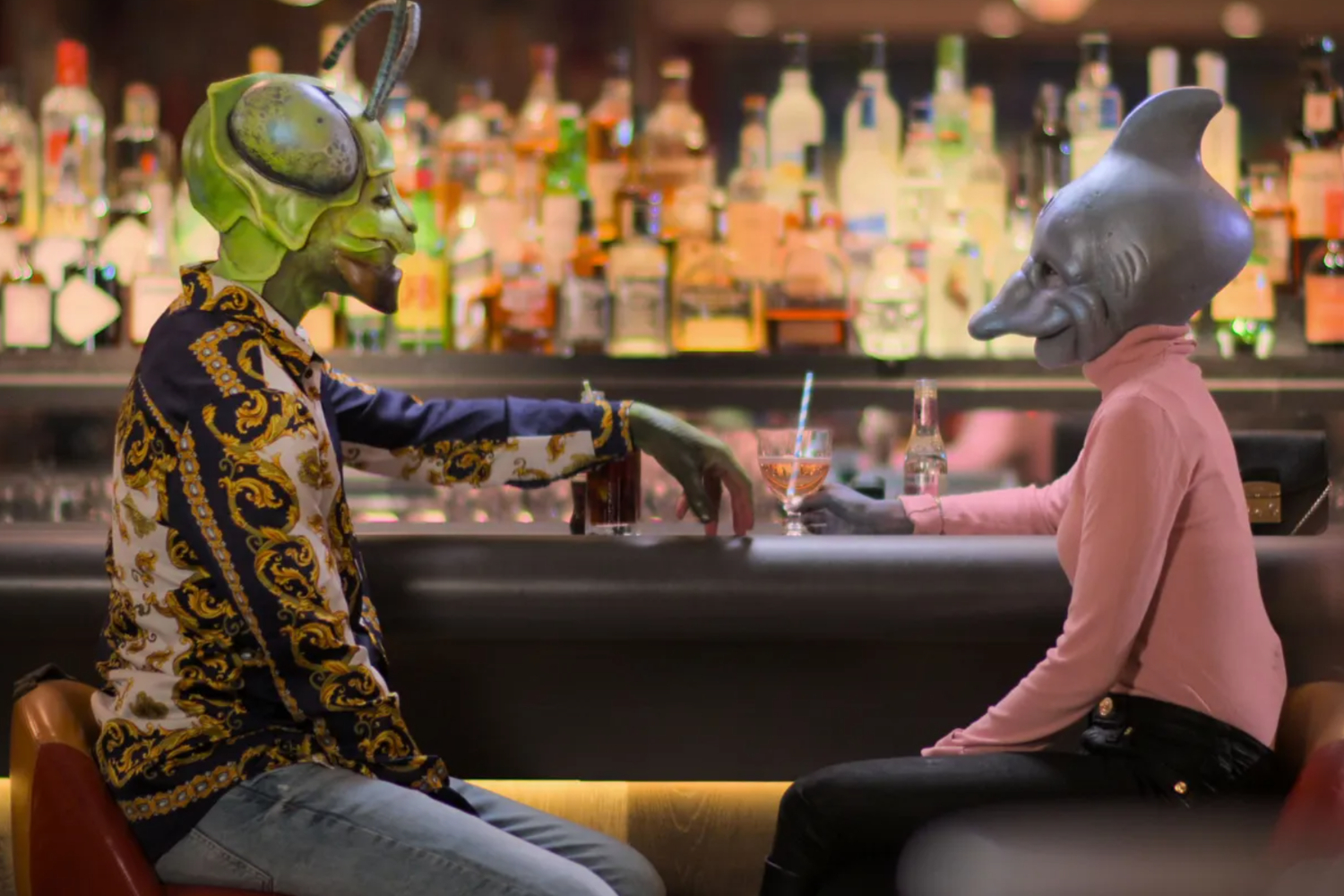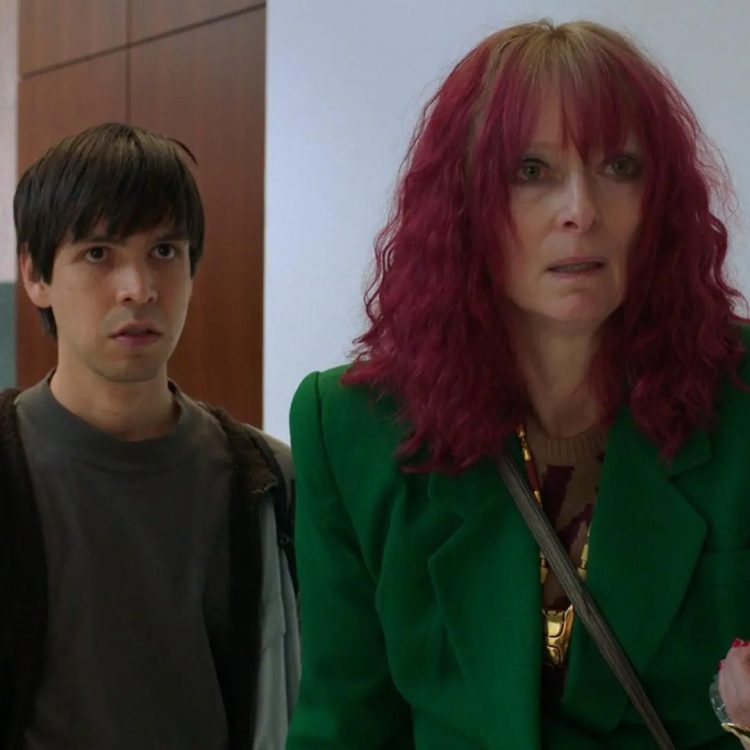Before I explain my love of Feel Good — a just-ended, little-seen Netflix show I’d rank with Fleabag in terms of comedic vision — I’m going get some negative energy out of the way.
So here’s the, ahem, feel bad: Netflix isn’t the kindest home to under-the-radar comedies — witness the four series they unceremoniously dumped a few days back that had only completed one or two seasons (sorry to see you go, Bonding — a pretty funny series about a dominatrix and her high school guy best friend who just came out).
So last year I didn’t have much hope for Feel Good, a rather anonymous-sounding comedy/drama about (sigh) a stand-up comedian. With issues! You know, like every show starring a comedian since 2010.
I also wasn’t at all familiar with the show’s star, Mae Martin — after the fact, totally my bad — and Lisa Kudrow’s involvement in the series was masterfully hidden. Also, the dynamics of the series — a Canadian comedian living and working in England who falls in love with a British woman but there’s also an American named Phil as a housemate — sounded unnecessarily confusing.
As well, I only discovered Feel Good because I’m an Anglophile when it comes to comedy. I had just finished Siblings with British actress Charlotte Ritchie, a show akin to It’s Always Sunny in Philadelphia in that it’s very funny, vulgar and centered on absolutely terrible people. I had also liked Ritchie in the excellent college (uh, university) set Fresh Meat, where her character “Oregon” was unapologetically self-absorbed (“I have a photographic memory when it comes to praise.”). She may be a great person in real life, but Ritchie does play awful really well.
So TL;DR: If I wasn’t into hard-to-find British sitcoms, I wouldn’t be watching Feel Good. (Also: That title is regrettably forgettable.) To give Netflix some credit, it appears the series was initially a British show the streamer picked up and then actually ordered an additional season of on their own accord.
Now for the kudos: Feel Good is both a comedic and dramatic standout, a show that deftly tackles sobriety, love and even cancel culture (the latter rather explicitly in season two). Mae Martin, in a semi-autobiographical role, stars as herself, a Canadian who works and does stand-up in England. They (Martin identifies as non-binary) are also dealing — and not dealing — with addiction issues and gender identity.
Ritchie is George, a somewhat repressed young English woman with terrible friends and a job she hates. But during Martin’s stand-up gig, there are sparks. And from a backstage meetup, a romance begins. Over twelve episodes, Feel Good charts the course of an unexpected but honest relationship, as well as Martin’s path of self-discovery, which is messy and occasionally dark.
But the show itself can be very sweet, funny in unexpected ways — the very blonde Martin “looks like corn,” according to George — and sexually blunt: references to rimming, double-ended dildos and anal play are uttered rather matter-of-factly. And one (eventually thwarted) sex scene in a hospital crosses multiple boundaries. It’s hilariously cringe.
With honesty and straight-forwardness also comes that dark side. Unwanted male aggression is ever present and shown in a brutally realistic fashion. In season two Mae confronts her former friend/comedic mentor Scott, who took advantage of Mae as a teenager (and, implied, several other underage women). The resolution brings personal closure but not any form of justice.
The groundbreaking here, though, comes with the discussion of identity, which is handled in a candid, funny and non-judgmental way. Spoilers ahead: The final episode of season two, the series finale, features a near-perfect back-and-forth between George and Mae after the latter is called “sir” at a food cart.
Mae: “How do think of me, as a boy or a girl?”
George: “Just you, really. More importantly, how do you see you?”
“Just me, really, I think, but that feels like not really a thing or …”
“I think that is a thing. It’s non-binary, Mae. I do think maybe you should Google it.”
“Yeah. [Laughs]. I should Google it.”
“You tell me, and I’ll use the right words.”
The show could have ended there, but that beautiful exchange is just one minute early on an episode filled with several dramatic and comedic high points (BTW, a series finale as a show’s best episode might also be a first). And yes, Kudrow — as Mae’s uptight and exasperated mother — is great throughout.
But overall, I leave the best description of the short-lived series to Phil, a seemingly minor comedic character who truly grows in season two and offers up a brutally frank description of his friends Mae and George — that they are severely flawed and sometimes downright unlikable together.
“I don’t know if anyone’s ever told you this, but you guys are a lot as a couple,” as Phil notes in the series finale, eventually ditching the two lovebirds to hang with Mae’s parents. “Kind of wrapped up in your own problems. I’ve never heard you guys have a conversation about science. I’m gonna take a little break from the drama.”
Apparently, we’re all taking a break. But kudos to Netflix for giving us a brief respite before the end — and for offering up more chances to see Martin in different roles in the near future.
This article was featured in the InsideHook newsletter. Sign up now.





















